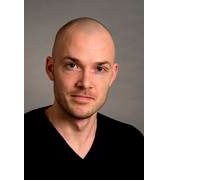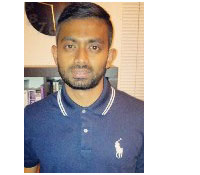New doctors: We're looking forward to what awaits us out there
Sansuthan (Sansu) Paramanathan (26) and Johan Frederik Berg Arendt (29) are both newly qualified medical doctors from Aarhus University. On Friday 30 January 2015 they pledged the Hippocratic oath together with 110 other newly qualified doctors from Aarhus University. We talked to them about their time at AU and what plans they have for the future.


What was studying medicine at Aarhus University like?
Sansu: It was good and sometimes tough. I have always had a dream of becoming a doctor, but when I started I found the Bachelor programme’s many natural science subjects to be a challenge. It was only once I got to the Master’s that I really started to deal with diseases and treating human beings. I thought that was a shame. But when I think back now it actually makes sense. First you have to have the basic knowledge in order to be able to diagnose and treat diseases.
Johan: I have enjoyed studying medicine at AU and I have particularly valued the research opportunities during the degree programme. There is a lot of focus on research at AU and AU Administration are very good at helping the students combine research and education. So my "study job" for the past five years has therefore been research and I’ve been really pleased about that.
Can you name one thing from the programme that you’re going to use now?
Sansu: There are a lot of things from the degree programme that I will use. Of course there is all the theoretical knowledge, but one thing I will be using is the new initiatives such as communication from the Master’s programme. Communication with patients is an important part of the medical profession and the professional tracks with various communication modules have been very beneficial. Even though good communication is not something you can just learn from a book, but something I need to keep working and getting better at.
Johan: It was first towards the end of the degree programme that I realised I was about to finish my training as a medical doctor. Far into my education I felt more like an academic than a doctor. But I am really looking forward to practising medicine and perhaps having the chance to combine research and clinical practice, as I have been able to during the degree programme.
What was your experience of the combination of theoretical and clinical courses?
Sansu: During the Bachelor there was particular focus on the theoretical and less on the practical aspects. But the Master’s programme has a good balance between theory and practice in each semester. Sometimes it may seem a little rigid when we read about the various diseases and try to remember everything. During the internship we meet people and diseases that do not quite fit into the theoretical boxes. This gives you some good practical experiences that we could not learn from our books.
Johan: I have really appreciated the high academic standards combined with good teaching and the internship. The many intense and short-term internships were mostly educative and motivating. Meeting so many good role models in the clinical part has made a special impression on me. It has helped to increase my commitment during exam periods and the “heavy” subjects.
How do you think the transition from studying to working life will be?
Sansu: I think that no matter how well-prepared we are as new graduates, the transition from studying to working as doctors will always be a challenge. Here I think about the fact that it can be scary and challenging to have responsibility for another person. Of course it also means that as I begin my working life I will ask my older colleagues for advice. Hopefully they will remember what it was like to be young doctor.
Johan: For me, that probably will not be the biggest difference. I will continue with the research I know well. Now it will just be full time. But I expect that the transition from my research job to working as a clinical doctor will be very demanding and challenging, even though it is something I am also looking forward to.
What are your plans for the future?
Sansu: I have found a two-month temporary position in Vejle in neurology. After that on 1 May 2015 I will begin my clinical basic education at the Emergency Department and the Department of Renal Medicine in Aarhus. I have not made any big plans for my career, but I am thinking about applying for an introductory position in neurology, ear-nose-neck surgery, or taking a one-year registrar position in the Danish armed forces. For me, it is important to try some different areas before I choose my speciality area.
Johan: During the next two years I will be busy with research and my PhD degree programme. After that I have to take the clinical basic education and, finally, the medical specialist programme. I do not yet know the area of even when I will start on the clinical basic education. But that is also a conscious decision as I still have two years to go. I like to keep an open mind about choosing the right career path. Right now, what I really want to do is research, so I would not be surprised to see that and my family situation have a big impact on my future career, concludes Johan Frederik Berg Arendt.
About the graduation ceremony at Medicine
The new medical doctors pledge the Hippocratic oath at an event in the Main Hall at Aarhus University on Friday 30 January 2015 at 16:00. Dean Allan Flyvbjerg will present the higher doctoral degree certificates and Peter Schwarz will be this year's keynote speaker. Aarhus University Choir will provide the entertainment.
The event will be streamed and can be followed on http://www.au.dk/live. The recording can subsequently be found and downloaded from the alumneportalen GERDA.
